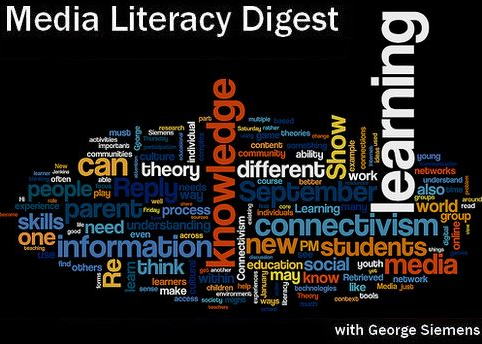The Literate Future
 Saturday, January 30, 2010 at 6:21AM
Saturday, January 30, 2010 at 6:21AM

At the conclusion of a short piece on text, literacy and the Internet, Nicholas Carr suggests the following about the digital age: "Writing will survive, but it will survive in a debased form. It will lose its richness. We will no longer read and write words. We will merely process them, the way our computers do."
I want to take issue with this pessimistic prediction. At every stage of technological change since the invention of the printing press, similar claims have been made. Most often, these claims originate with those people more likely than others to be both literate and dependent on traditional forms of explanation and exposition. The appearance of the telephone in the 1850's led to predictions of the death of conversation. The growth in the distribution of books and magazines in the 19th century led to predictions that writing, both as process and creative activity would be debased. More recently, the growth of digital tools and their pervasive use led to predictions that creative practices like painting would disappear. (The reverse is true. There has been a renaissance in interest in painting in most Art Schools and a significant rise in attendance at museums showing both contemporary works as well as paintings from different historical periods.) The invention of the cinema in the 1890's led both politicians and critics to suggest that the theater was dead.
In most cases, the advent of new technologies disrupts old ways of doing things. Equally, the disruption builds on the historical advantages conferred upon the medium through its use and modes of distribution. Text is everywhere in the digital age, and while it may be true that attention spans have decreased (although research in this area is very weak), that says nothing about how people use language to communicate whether in written or verbal form.
The example that is most often cited as evidence that there has been a decline in literacy is text messaging. What a red herring! Text messaging is simply the transposition of the oral into text form. It is a version of speech not of writing. It neither indicates a loss of ability nor an increase in literacy. Rather, and more importantly, text messaging is another and quite creative use of new technologies to increase the range and often the depth of communications among people.
The beauty of language is its flexibility and adaptability. The various modes of conversation to which we have become accustomed over centuries have a textured and rich quality that depends on our desire to communicate. That desire crosses nearly every cultural and political boundary on this shrinking earth. Rather than worry about whether text messaging will undermine literacy, we need to examine how to use all of the new modalities of communications now available to us to enhance the relationships we have with each other. That is the real challenge, quality of exchange, what we say and why and how all of that translates into modes of expression that can be understood and analyzed.



Reader Comments